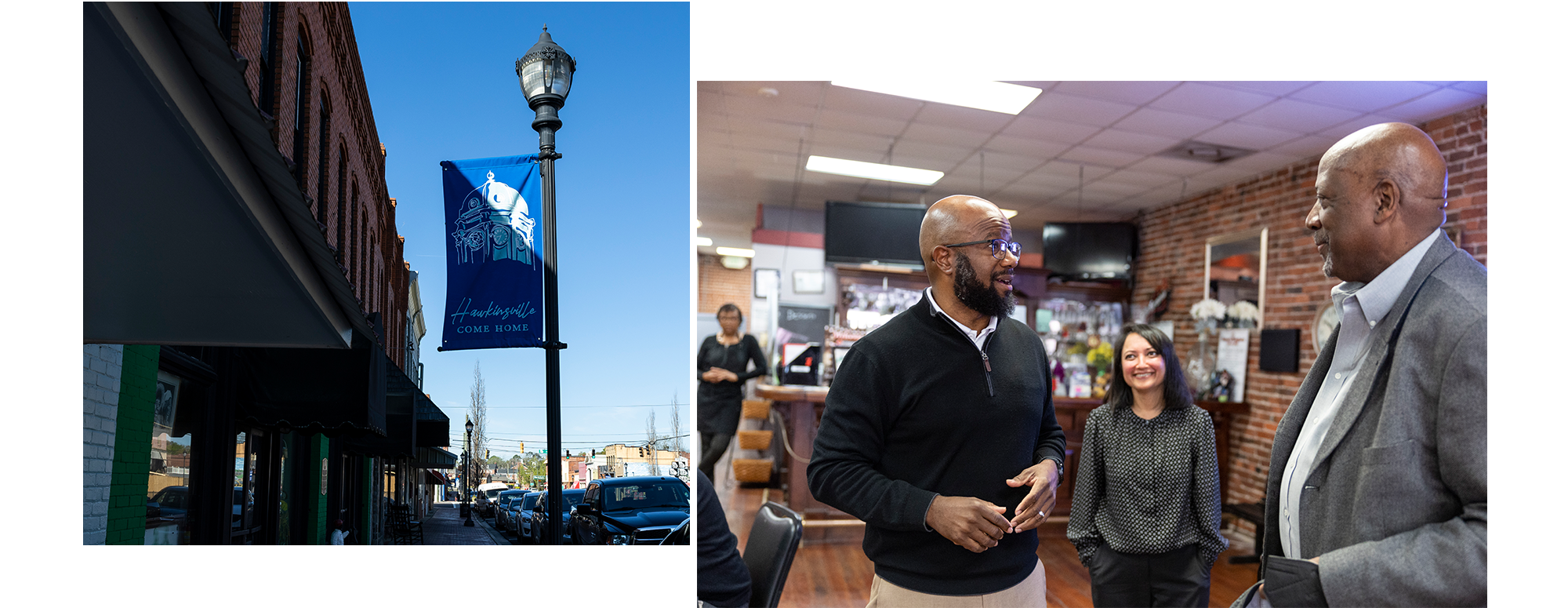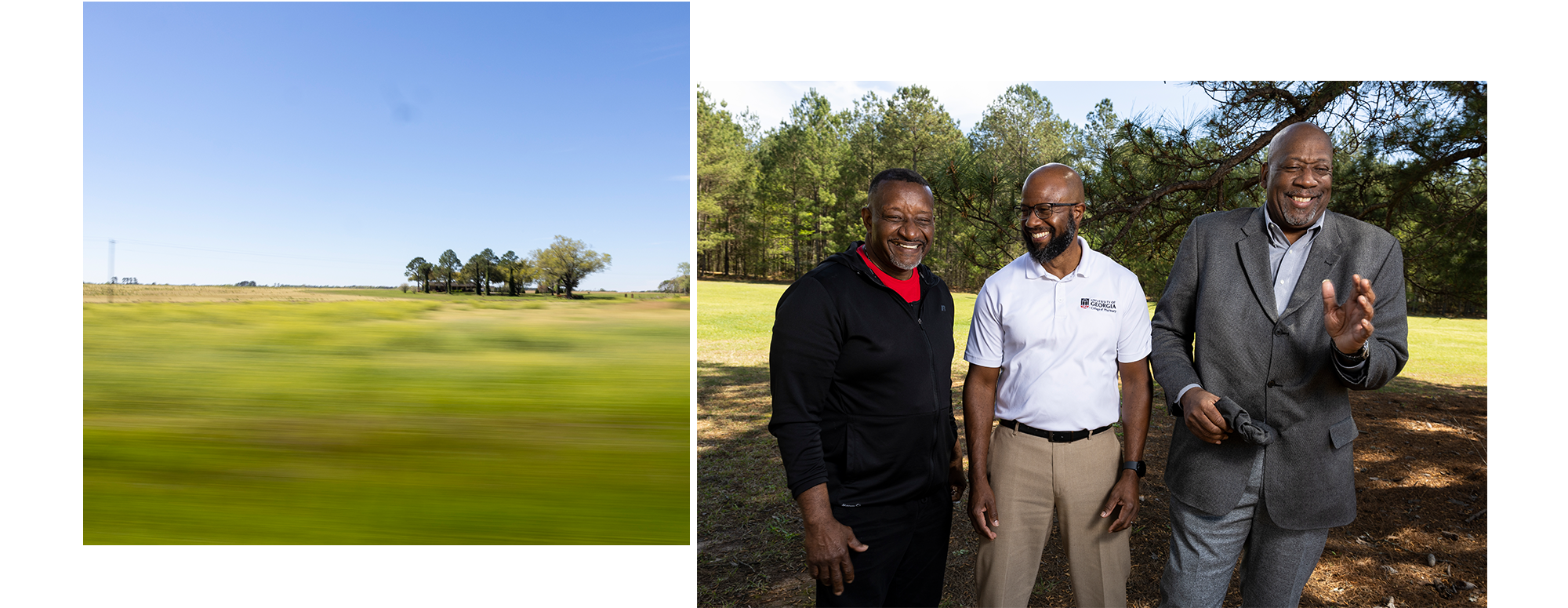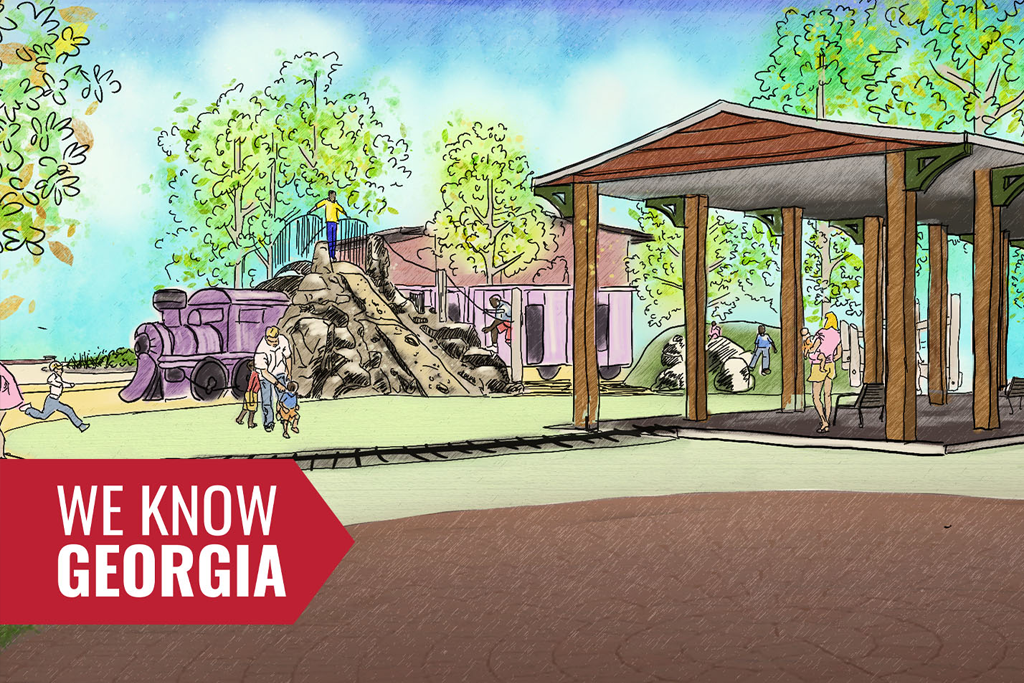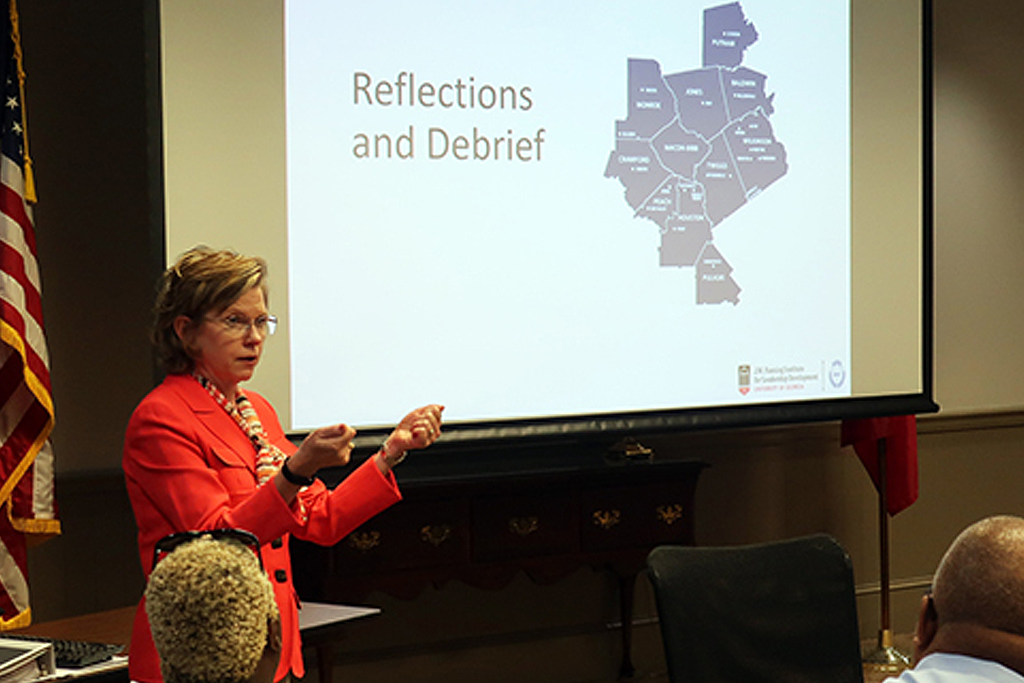UGA partnerships in Pulaski make for a healthier community
The impact of rural health goes beyond the individual. It affects the whole community.
Through a long-time partnership with the University of Georgia, residents in a rural Georgia community benefit from innovation, expertise, and collaboration to improve health and economic prosperity.
File Under
It’s the first Saturday in November, and Henry Young is on the road to Hawkinsville.
It’s a familiar trip for Young, the Kroger Professor at the University of Georgia College of Pharmacy. He has been working with the Pulaski County community to solve health issues since 2016.
As Young reaches downtown Hawkinsville, he soon joins a group of men outside Renee’s Southern Bar & Grill on Commerce Street. Once inside, they soak up the fresh aromas of sizzling bacon and fresh coffee and make their way to the round tables that have welcomed them many times before.

Conversations begin, and talk turns to family, old friends, sports, and, finally, health. It’s the last topic that generates a more serious tone.
Like many of Georgia’s rural communities, Hawkinsville—a city of nearly 4,000 about 50 miles south of Macon—lacks health care resources. Though the community is fortunate to have Taylor Regional Hospital and its urgent care center, residents often must drive at least 30 minutes for routine care. For those who don’t have access to transportation, preventable health problems go unchecked.
That’s where Young comes in.

Providing access to rural health resources
“The work that we do is all about relationships, making connections, and being able to foster and support those relationships, especially with common goals. That’s invaluable for us.”
Young’s connection to Pulaski County started in 2016 through his work with the Archway Partnership, a unit of UGA Public Service and Outreach, in helping Taylor Regional look at why patients with certain illnesses were being readmitted.
The Archway Partnership begins with a faculty member who works with local leaders to facilitate community conversations and identify development opportunities. Next, the Archway professional connects UGA faculty and students with the community to collaborate on projects. The result is a mix of academic and local experience fueled by a lot of enthusiasm.
“Programs like the Archway Partnership are just phenomenal because they go in, and they establish that relationship with a community,” says Young. “The work that we do is all about relationships, making connections, and being able to foster and support those relationships, especially with common goals. That’s invaluable for us.”

Young’s most recent work in Pulaski County is Fishers of Men, which addresses preventative health issues among men in the community.
Launched in 2020 with a $900,000 grant from the U.S. Department of Agriculture, the initiative involves more than 20 churches from the Interdenominational Ministerial Alliance and the Georgia Union Missionary Baptist Association.
“We’re teaching folks how to help themselves, address medical conditions, and live better lives.”
Participating churches have telehealth hubs that help participants learn more about personal health and ways to manage chronic conditions like diabetes and heart disease. The hubs feature big-screen TVs, computers, and internet capabilities to facilitate medical appointments.
The Saturday morning meetings have become a forum for support, progress, and celebration.
“We’re teaching folks how to help themselves, address medical conditions, and live better lives,” says Young.
Forging a Partnership
The Rev. Victor Cooper of First United Christian Church and the Rev. Jeffrey Lawrence of Sandridge Baptist Church are partners in the program and host technology hubs for Fishers of Men at their churches.
“Because of the commitment that UGA has made to our community, we’ve made so much progress.”
Cooper and Lawrence—both UGA alumni—relish their collaboration with Young and appreciate the credibility that UGA brings to the program. Lawrence says it makes his heart “swell with pride” to see the work his alma mater is doing in rural Georgia.
“Working with UGA has been instrumental,” says Cooper of First United Christian Church. “For us, being in a rural area, you think it would be unattainable. But now, because of the commitment that UGA has made to our community, we’ve made so much progress.”

Addressing the bigger picture
As Young points out, the program’s work to improve individual’s health can also improve their financial situation and the health of the local economy.
“The workforce is the engine of our economy,” says Young. “If folks are unhealthy, that makes for an inefficient and unproductive workforce. Creating that healthy community is going to translate into a healthy workforce, which is good for the economy.”
Young’s work is one piece in the longtime relationship between UGA and Pulaski County. Since becoming an Archway Partnership community in 2009, Pulaski County has completed 181 projects based on initial community priorities. Most recently, a new city hall in Hawkinsville and the repaving of Commerce Street—the city’s main thoroughfare—have highlighted downtown revitalization efforts.

“UGA and the Archway Partnership have greatly enhanced the quality of life in Hawkinsville and Pulaski County.”
“UGA and the Archway Partnership have greatly enhanced the quality of life in Hawkinsville and Pulaski County,” says Jenna Mashburn, Pulaski County Sole Commissioner and chair of the Archway Partnership Executive Committee. “Its effects can be seen across the landscape of our community, from our healthcare systems to local traffic patterns to downtown redevelopment and even greenspace utilization. Archway brings an immeasurable, and at times unaffordable, level of support into the reaches of rural Georgia by providing a direct link to the vast resources available within the University of Georgia.”


